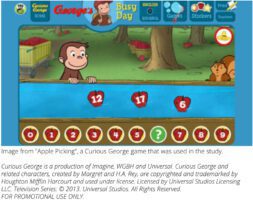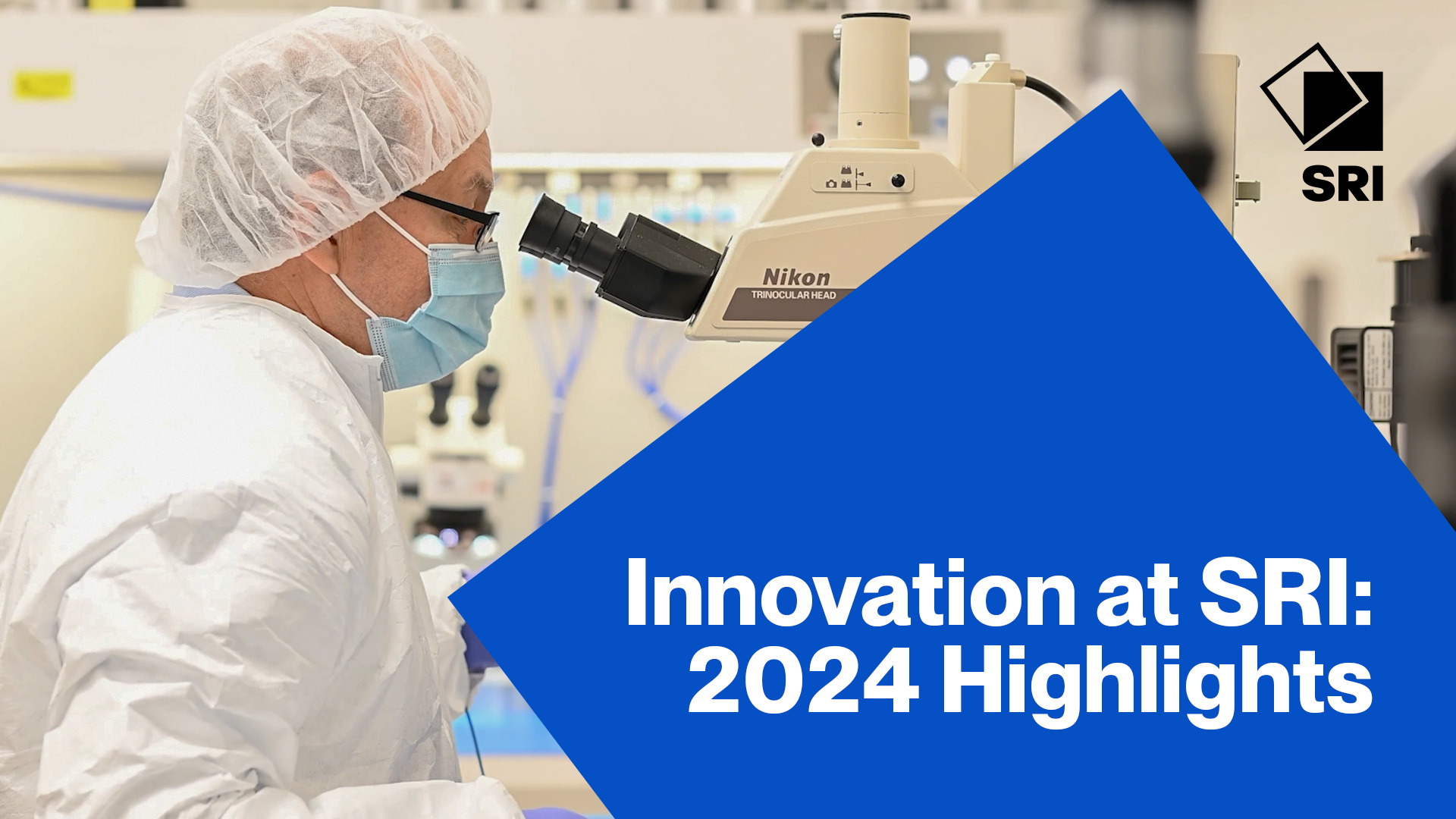SRI Education and Education Development Center (EDC) recently released findings from our large experimental field study of a PBS KIDS mathematics curriculum supplement. The PBS curriculum supplement features use of “transmedia”—with familiar characters, settings and stories appearing across different platforms, such as video and interactive games. The study’s findings can inform the conversations that parents, teachers, policy makers, and media producers are having about early mathematics and young children’s engagement with technology and media.

The study was sponsored by Ready To Learn (an initiative of the U.S. Department of Education), the Corporation for Public Broadcasting and PBS. Ready To Learn aims to harness the educational potential of public media to support kindergarten readiness for children growing up in economically disadvantaged circumstances. The children in our study were three- to five-year olds from preschool programs primarily serving children from low-income households.
As part of the study, preschool teachers in a third of the study’s 92 classrooms in New York City and the San Francisco Bay Area used a 10-week PBS KIDS Transmedia Math Supplement in their classrooms. The supplement thoughtfully integrated PBS KIDS videos and interactive content such as Curious George, The Cat in the Hat Knows a Lot About That!, Sid the Science Kid, and Dinosaur Train, with traditional preschool resources including read-aloud books and math manipulatives such as foam shapes. For the study, all classrooms were equipped with broadband internet access, interactive white boards, laptop computers, and on-demand technical support. Additionally, teachers received pre-study training and ongoing coaching to ensure the supplemental materials would integrate smoothly with classroom routines such as circle time.
Key Findings
Everyone is invited to read the full study, but here’s the bottom line: Compared to those study classrooms assigned to the control condition without technology and the curriculum supplement,
- Children in classrooms using the supplement improved significantly in their understanding of targeted early mathematics skills such as counting, number recognition and subitizing (knowing how many there are in a set of objects without counting), and recognition of shapes and patterns.
- Preschool teachers who used the supplement reported significant increases in their confidence and comfort with early mathematics concepts and teaching with technology.
Also noteworthy: The final third of classrooms were equipped with the same technology resources, and teachers received the same level of technology support as those in the PBS KIDS Transmedia Math Supplement condition. Teachers received pre-study training on technology and target mathematics skills, and ongoing coaching to support technology integration for mathematics learning. Researchers did not provide the curriculum supplement to these classrooms, however. Instead, teachers were encouraged to use the new technologies and given pointers to digital resources they might use to enrich their existing lessons. Children and teachers in these classrooms did not experience the same benefits as children and teachers in the intervention condition.
Study Implications
Parents and teachers increasingly recognize that learning mathematics in preschool gives children an essential foundation before entering kindergarten. This includes familiar skills such as counting aloud and recognizing numbers, and other essential skills: recognizing and creating patterns, recognizing and making a wide range of shapes and understanding their properties (like lines, angles and curves), understanding spatial relationships, and subitizing.
Unfortunately, most preschool educators do not have access to the training and materials needed to help children build these essential skills. Our research provides more evidence that the development and dissemination of resources and supports can go a long way toward helping close the math achievement gap before children step into kindergarten for the first time. The study also provides support for the idea that media and technology resources carefully selected and skillfully integrated into preschool curricula are an effective way of helping children who may begin school at a disadvantage.
We hope our research will advance understanding about the importance of early mathematics learning—shown to be a one of the strongest predictors of later learning—as well as how young children can interact with media appropriately.
The national conversation is shifting from whether young children (over the age of 2) should have experience with screen-based technologies to what sorts of experiences and amount of exposure are appropriate and beneficial. SRI and EDC’s current study (like our 2009 early-literacy study of transmedia resources) shows that technology can have a place in preschool classrooms, and integration can happen in ways that advance learning without detracting from practices known to be supportive of healthy development. There is an argument to be made that early educators, given the right support and training, are best positioned to use technology and media as a tool for learning.
As we continue to share our research findings, we hope they contribute to what teachers, parents, policy makers and media makers know about supporting early learning with media and digital technologies. We look forward to discussing the meaning and implications of these findings, and welcome readers to be in touch!


